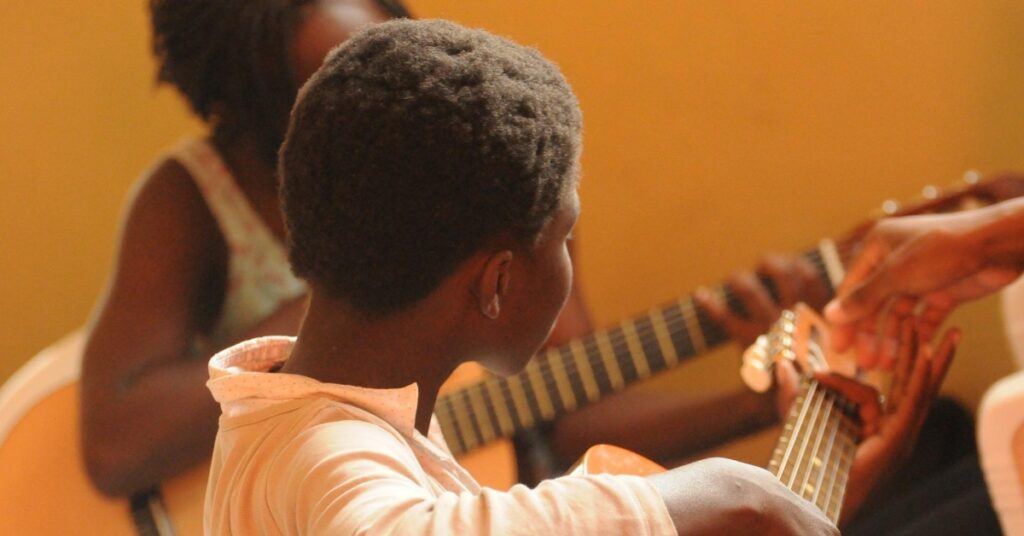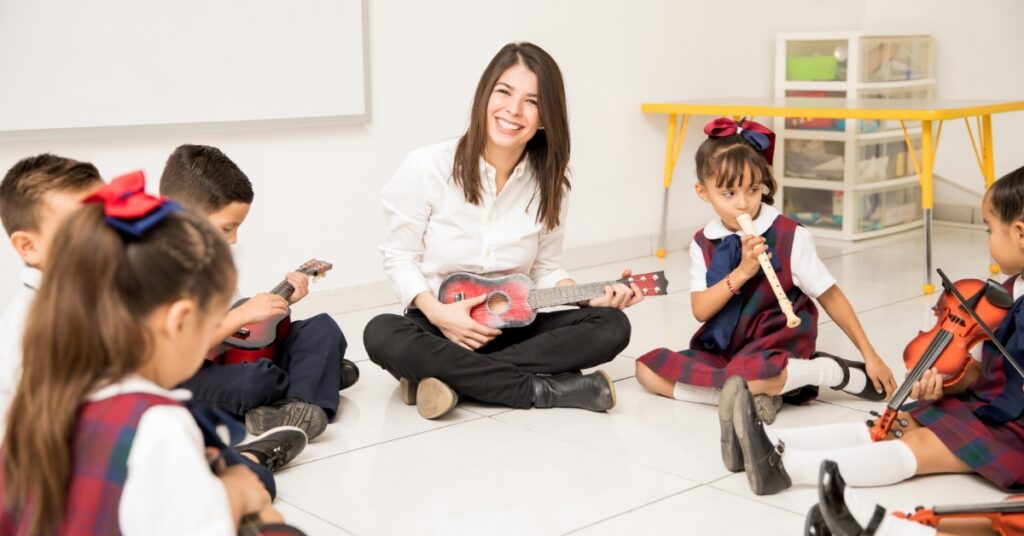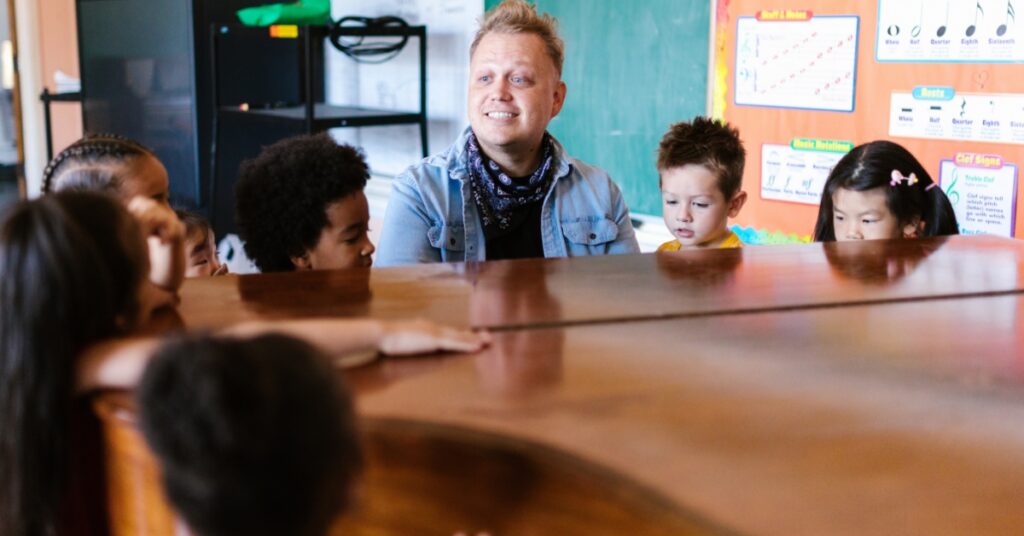The Benefits of Group Music Classes for Kids
Since the beginning of time, humans have relied on each other to learn and grow. If you think back to your childhood, almost all of your learning was done either in small groups or among other kids. The classroom is the obvious example, but there’s also the soccer field, the dance studio, the martial arts gym and more. Why should music lessons be any different?
We love learning in groups, and it comes naturally to us. It’s more fun, engaging, and provides us with an all-important opportunity for relationship building and social skill development.
In this blog post, we’ll highlight some of the key benefits for kids learning music in groups. We’ll also share some of the group music lesson options we have available here at Music Schools International – Langley.
Why should kids take music lessons in groups?
1. It’s more fun
Learning music in groups is much more fun than learning solo – especially for a child. Being able to interact with and learn with other kids their age with the same interests will only further their own interest in music. As opposed to one-on-one lessons, the learning environment is much more relaxed and allows students to worry less about being perfect and more about enjoying the process of making music.
2. Music is meant for groups
Simply put, music is meant for groups. The power of music can be felt and enjoyed when performed among people and with people. Whether it’s a band or solo performer, musical artists depend on an audience as well as back-up singers and performers. Mozart and other famous composers even wrote many of their compositions for ensembles – not just for a solo pianist. Because playing and performing among other people is almost inevitable, getting started at an early age is super helpful.
3. It takes the pressure off
The dynamic of one-on-one lessons can sometime be tense. The student is eager and anxious to show the instructor what they can accomplish, but will often make mistakes or perform worse than they expected. This kind of environment isn’t always conducive to learning.
But in a group setting, that pressure is lifted and distributed among all the students. The sound of many instruments at once will grind away the sound of mistakes, and the instructors teach one-to-many rather than singling kids out.
4. They’ll learn more about music
By participating in music lessons along with other people, it becomes easier to retain information. That’s because the key learnings are enforced multiple times. Not only will they hear the instruction many times from the instructor, but they’ll hear it from the instruments of their peers as well.
There’s also the opportunity for instructors to teach with different styles when in groups. Games and activities that involve multiple people are a great option, and can provide students with a more well-rounded education. After all, learning music isn’t just about reading the music and translating it into sounds. It involves theory, rhythm, improvisation, movement, and even singing – all of which work great in a group setting.
5. Groups have the power to motivate
In one-on-one lessons, motivation can be an issue. If the instructor is unable to sufficiently motivate a kid to practice and be their best, they’ll be on their own. But in groups, it’s very easy to compare yourself to others. This can create healthy competition, and drive a student to put the time in, get better, and show their peers what they’re capable of.
6. Important social skills
Last, but possibly the most important of them all – your kids will learn valuable social skills by taking music lessons in groups. The foundational skills they learn today will no doubt have a big impact down the road. By exposing your kids to these social settings early on in conjunction with school and other extracurriculars, they may have an easier time later on:
- When learning an instrument together, kids will be in a situation where they need to communicate and collaborate
- That collaboration will be the building blocks of new friendships
- Presenting in groups and public speaking
MSI Group Class Options for Kids
- Jitterbugs
Jitterbugs is our weekly 30-minute lesson designed to introduce music to two-year kids. We’ll sing, play percussion and learn to move to the music. Siblings, parents and guardians are welcome, too! Classes are just $12.50 per session. Inquire about signing up for Jitterbugs.
- Beeboppers
Beeboppers is our special class for 3-year old kids – the next stepping stone after Jitterbugs. Here we’ll dive into more fun methods of learning and enjoying music, such as developing rhythmic skills, singing for pitch, musical games, movement for coordination, and more. These classes run 45 minutes, are open to parents, and cost $19.50 per session. Learn more about Beeboppers registration.
- Pianorama
Pianorama is our piano program. We have a junior intake for 4-6-year old kids and a primary intake for 7-10-year old kids. Both classes are 45 minutes long and cost $25 each. Kids will learn piano skills along with singing, percussion, theory and musical games. Kids will be introduced to all sorts of musical styles, musical structure, and the chance to play along with orchestral and band tracks. As the program progresses into the higher levels, kids will start learning how to play in an ensemble and they will begin learning how to compose their own music. Learn more about our Pianorama group classes.
- Musical Theatre Program
In our Musical Theatre Program designed for 8-12-year old’s, kids will get the chance to learn and perform songs from famous Broadway musicals. We’ll explore vocal techniques, choreography, acting skills, and even how to do vocal auditions.
Early exposure to musical education in group classes will inspire your kids to appreciate and learn music for years to come, but it will also grant them life skills that could be life changing. To learn more about MSI’s group lessons for kids, don’t hesitate to reach out with any questions. We’d love to hear from you!


